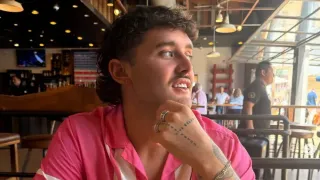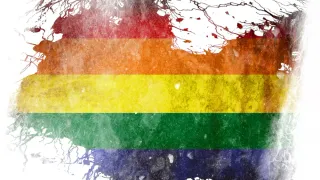April 24, 2023
Don Lemon, Longtime CNN Host, Out at Cable News Network
David Bauder READ TIME: 2 MIN.
Longtime CNN host Don Lemon is out at the cable news network a little over two months after apologizing to viewers for on-air comments about Republican presidential candidate Nikki Haley, CNN announced Monday
"CNN and Don have parted ways," CNN chair Chris Licht said in a memo to staff that was also posted on the network's communications Twitter account. "Don will forever be a part of the CNN family, and we thank him for his contributions over the past 17 years. We wish him well and will be cheering him on in his future endeavors."
CNN did not provide a public explanation for Lemon's departure. But on the "CNN This Morning" co-host's own Twitter account, Lemon contended the news came as a surprise to him and characterized it as a firing. He had appeared on his show that morning.
"I was informed this morning by my agent that I have been terminated by CNN. I am stunned," he wrote in a statement posted shortly after 12 p.m. Eastern. "After 17 years at CNN I would have thought that someone in management would have the decency to tell me directly. At no time was I ever given any indication that I would not be able to continue to do the work I have loved at the network."
In mid-February, Lemon caused an uproar when, during a discussion on "CNN This Morning" with co-hosts Poppy Harlow and Kaitlan Collins about the ages of politicians, he said that the 51-year-old Haley was not "in her prime." A woman, he said, was considered in her prime "in her 20s, 30s and maybe her 40s."
Harlow challenged Lemon, trying to clarify what he was referencing: "I think we need to qualify. Are you talking about prime for childbearing or are you talking about prime for being president?"
"Don't shoot the messenger, I'm just saying what the facts are," Lemon responded. He brought up the subject again an hour later, and was rebutted by commentator Audie Cornish.
Lemon issued a statement saying he regretted his "inartful and irrelevant" comments, which Haley herself called the comments sexist and used to fundraise. He was subsequently absent from the show for three days, returning the following week with a tweeted apology but no mention of the episode on air.
Licht told staffers in a memo at the time that Lemon would undergo "formal training," but did not specify what that would entail. Licht added that it was important to him that the network "balances accountability with ... fostering a culture in which people can own, learn and grow from their mistakes."







